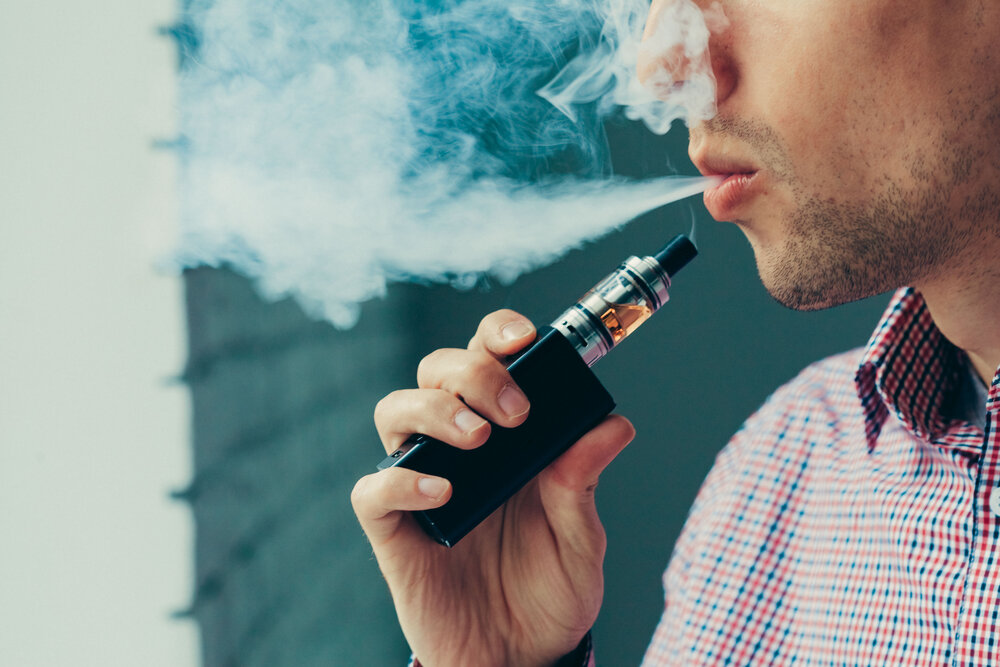On July 22nd, 2019, the FDA issued a warning letter to Curaleaf—a manufacturer of hemp-CBD products. The FDA claimed that the company had violated the Federal Food, Drug, and Cosmetic Act (the “FD&C Act”) in at least three ways: (1) by selling unapproved human drugs, (2) by selling unapproved animal drugs, and (3) by improperly marketing its products as dietary supplements.
In issuing the warning letter, the FDA based its determinations on its review of Curaleaf’s website and social media accounts. On its website and social media accounts is where the FDA claims that Curaleaf took orders for multiple products containing CBD and improperly promoted those products as having the ability to mitigate and treat chronic pain, anxiety, and other disorders.
The Sale of Unapproved Human Drugs
Under the FD&C Act, products that are intended for use in the diagnosis, cure, mitigation, treatment, or prevention of a disease, or are intended to affect the structure or any function of the body are considered “drugs” and are subject to regulation under the FD&C Act. In determining that certain CBD products being sold by Curaleaf should be considered “drugs” under the FD&C Act, the FDA cited Curaleaf’s website, which contained claims that its CBD products could be used “for chronic pain.”
In addition, it cited to posts on Curaleaf’s website, blog, and social media accounts, which contained general claims that CBD could be used to treat or mitigate chronic pain, anxiety, ADHD, Parkinson’s, Alzheimer’s, depression, opioid withdrawal and dependence, cancer, heart disease, arthritis, depression, PTSD, anorexia, and/or schizophrenia.
The FDA concluded that the claims made by Curaleaf on its website, blog, and social media accounts, established the intended use of Curaleaf’s products as drugs. Because the FD&C Act requires drugs to be subject to clinical testing for safety and efficacy and FDA approval before coming to market—requirements that Curaleaf’s products did not meet—the FDA’s warning letter concluded that Curaleaf’s CBD products constituted unapproved new drugs.
The Sale of Unapproved Animal Drugs
Similarly, the FDA’s warning letter alleged that one of the company’s products, “Bido CBD for Pets,” constitutes an unapproved animal drug. In support of its claim, the FDA pointed to posts on the Curaleaf’s blog indicating that CBD can relieve anxiety, stress, trauma, pain, muscle spasms, arthritis, and cancer in pets.
The Improper Marketing of Products as “Dietary Supplements”
In addition, the FDA’s warning letter took issue with the company’s marketing of its CBD products as dietary supplements and warned Curaleaf that the CBD products at issue cannot be marketed as dietary supplements for two main reasons. First, the FDA reiterated its well-publicized position that CBD products are excluded from the definition of “dietary supplements” under the FD&C Act due to the fact that CBD is an active ingredient in an FDA approved drug (i.e., Epidiolex). Second, the FDA noted that the law defines a dietary supplement as a product “intended for ingestion.” Curaleaf’s CBD products—a lotion, tincture, pain patch, and vaporizer—do not meet this definition, however, as they are applied to the skin or inhaled, and not intended for ingestion.
5 Key Takeaways from the Curaleaf Warning Letter
1. Avoid Making Any Health-Related Claims About CBD Products, Not Just “Over-The-Line Claims”
After the passage of the 2018 Farm Bill, then FDA commissioner, Scott Gottlieb, issued a statement asserting FDA’s jurisdiction over hemp-CBD products and clarifying the FDA’s position the hemp-CBD cannot be marketed as a food or dietary supplement. Shortly after, however, Gottlieb acknowledged FDA’s inability to take enforcement against the sea of CBD dietary supplements on the market such that the agency would prioritize enforcement action against companies making “over-the-line health claims” (i.e., claims regarding serious diseases and conditions like cancer and Alzheimer’s).
The FDA’s letter to Curaleaf, however, specifically calls out the company for claiming that its products can address chronic pain, which arguably doesn’t rise to the level of an over-the-line health claim. The warning letter makes clear that the FDA is not just concerned about product claims regarding serious conditions like a cancer and Alzheimer’s and is instead concerned about any health-related claims. The Curaleaf letter is therefore an important reminder that CBD companies should avoid making health-related claims regarding their products no matter how serious the condition at issue is.
2. Avoid Making General Claims About the Therapeutic Effects of CBD (i.e., Claims That Are Not Product-Specific)
The majority of claims cited by the FDA as rendering Curaleaf’s products unapproved drugs do not relate directly to the company’s product. Instead, as noted above, these claims regard the ability of CBD more generally to treat or mitigate conditions such as cancer, Alzheimer’s, depression, anxiety in humans and animals etc. Even though the company did not directly state that its CBD products could impact these conditions, its claims regarding the therapeutic effects of CBD more generally implied as much. As a result, such claims, when made or pointed to by a CBD brand, will be considered health claims about a brand’s products and therefore render them unapproved drugs in the eyes of the FDA.
3. Avoid Including Links to Articles or Research Regarding the Therapeutic Effects Of CBD Can Result
Many CBD companies erroneously believe that they can end-run the FDA’s prohibition against health claims by linking to or posting articles and/or research suggesting that CBD can treat, cure, or mitigate certain health conditions. The majority of the claims cited by the FDA in the Curaleaf letter, however, were made in articles posted on the company’s blog or social media pages. It’s unclear whether these particular articles were written by the company or a third party because they’ve since been taken down, however, past warning letters make clear that any article linked to by a CBD company, even if published in an academic journal, indicating the health effects of CBD can be imputed to the company as a health claim.
Consequently, CBD brands should avoid the urge to educate consumers about the potential therapeutic uses of CBD and instead allow consumers to do their own research and draw their own conclusions.
4. Do Not Market Products That Are Not Ingestible as Dietary Supplements
As noted above, by definition, dietary supplements must be ingested. Products that are applied to the skin or inhaled, therefore, will not be considered dietary supplements. Consequently, CBD topical products, for example, must comply with the regulations related to packaging and labeling, claim making, manufacturing etc. applicable to cosmetics rather dietary supplements. Similarly, CBD vaporizers cannot be marketed, and therefore regulated, as dietary supplements.
CBD vaporizers, however, likely do not meet the FDA’s definition of tobacco products. Consequently, CBD vaporizers, seem to fall outside the purview of the FDA and its regulations, at least for now.
5. FDA Warning Letters May Not Impose Financial Penalties, But They Can Still Be Bad For Business
In the days following the FDA’s issuance of the Curaleaf warning letter, CVS, which began carrying Curaleaf products in March, announced that it was pulling the company’s products from its shelves. News of the warning letter also caused the company’s stock to drop 8%. Even though FDA warning letters do not themselves impose any financial penalties, CVS’s and the stock market’s response to the Curaleaf letter serves as an important reminder that FDA action can cause financial damage to a company. For this, and other reasons, it is essential for companies to take FDA compliance seriously.
Disclaimer
The materials available at this website are for informational purposes only and not for the purpose of providing legal advice. You should contact your attorney to obtain advice with respect to any particular issue or problem. Use of and access to this website or any of the e-mail links contained within the site do not create an attorney-client relationship between CGL and the user or browser. The opinions expressed at or through this site are the opinions of the individual author and may not reflect the opinions of the firm or any individual attorney.


